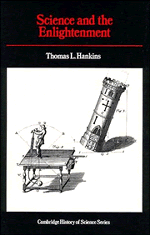IV - Chemistry
Published online by Cambridge University Press: 05 February 2015
Summary
In Herbert Butterfield's famous book The origins of modern science (1300–1800) (New York, 1956), there is a chapter entitled “The postponed scientific revolution in chemistry.” The title refers to the fact that the new chemistry associated with the oxygen theory of Antoine Lavoisier did not emerge until the 1770s and 1780s, a century after Newton's Principia had put the capstone on the Scientific Revolution of the seventeenth century. It is also significant that Lavoisier's contemporaries were conscious of and frequently mentioned a “revolution” that was occurring in chemistry, and that Lavoisier himself stated in 1773, in a private memorandum, that he believed the experiments he was undertaking would “bring about a revolution in physics and chemistry.” Scientists at the time and historians since have concurred in identifying chemistry as a subject that enjoyed its “revolution” during the Enlightenment.
In fact, the Chemical Revolution was more the creation of a new science than a change in an existing one. Before 1750, chemistry could not be regarded as an independent discipline. It had long antecedents, but they were ancillary to other fields. Alchemy was a source for many of the recipes and much of the apparatus of chemistry, but this information was concealed in intentionally ambiguous and allegorical language. Alchemy sought to complicate nature, not to rationalize it, and the alchemists' search for the philosopher's stone that would allow them to change base metals into gold was as much a spiritual quest as it was a scientific one.
- Type
- Chapter
- Information
- Science and the Enlightenment , pp. 81 - 112Publisher: Cambridge University PressPrint publication year: 1985



